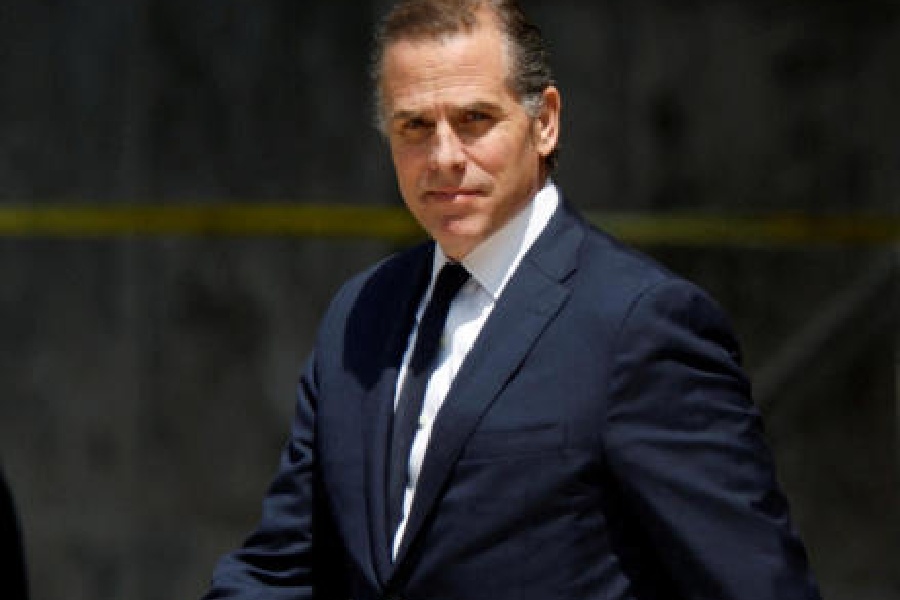Hunter Biden was indicted on Thursday on federal firearm charges, the latest and weightiest step yet in a long-running investigation into the President’s son.
Biden is accused of lying about his drug use when he bought a firearm in October 2018, a period when he has acknowledged struggling with addiction to crack cocaine, according to the indictment filed in federal court in Delaware.
President Joe Biden’s son has also been under investigation for his business dealings.
The special counsel overseeing the case has indicated that charges of failure to pay taxes on time could be filed in Washington or in California, where he lives.
The indictment comes as congressional Republicans pursue an impeachment inquiry into the Democratic President, in large part over Hunter Biden’s business dealings. Republicans have obtained testimony about how Hunter used the “Biden brand” to drum up work overseas, but have not produced hard evidence of wrongdoing by the President.
A gun possession charge against Hunter Biden, 53, had previously been part of a plea deal that also included guilty pleas to misdemeanour tax charges, but the agreement imploded during a court hearing in July when a judge raised questions about its unusual provisions.
Defence attorneys have argued that a part of the deal sparing Hunter Biden’s prosecution on the gun count if he stays out of trouble remains in place.
It includes immunity provisions against other potential charges. Attorneys indicated they would fight additional charges filed against him.
Prosecutors, though, maintain the agreement never took effect and is now invalid.
The gun charge filed against Hunter Biden on Thursday is rarely used alone, and the law could be on shakier legal ground after a recent appeals court ruling that found it doesn’t stand up under new Supreme Court standards for gun laws.
Republicans had denounced the plea agreement as a “sweetheart deal”. It would have allowed Hunter Biden to serve probation rather than jail time after pleading guilty to failing to pay taxes in both 2017 and 2018.
His personal income during those two years totalled roughly $4 million, including business and consulting fees from a company he formed with the CEO of a Chinese business conglomerate.











